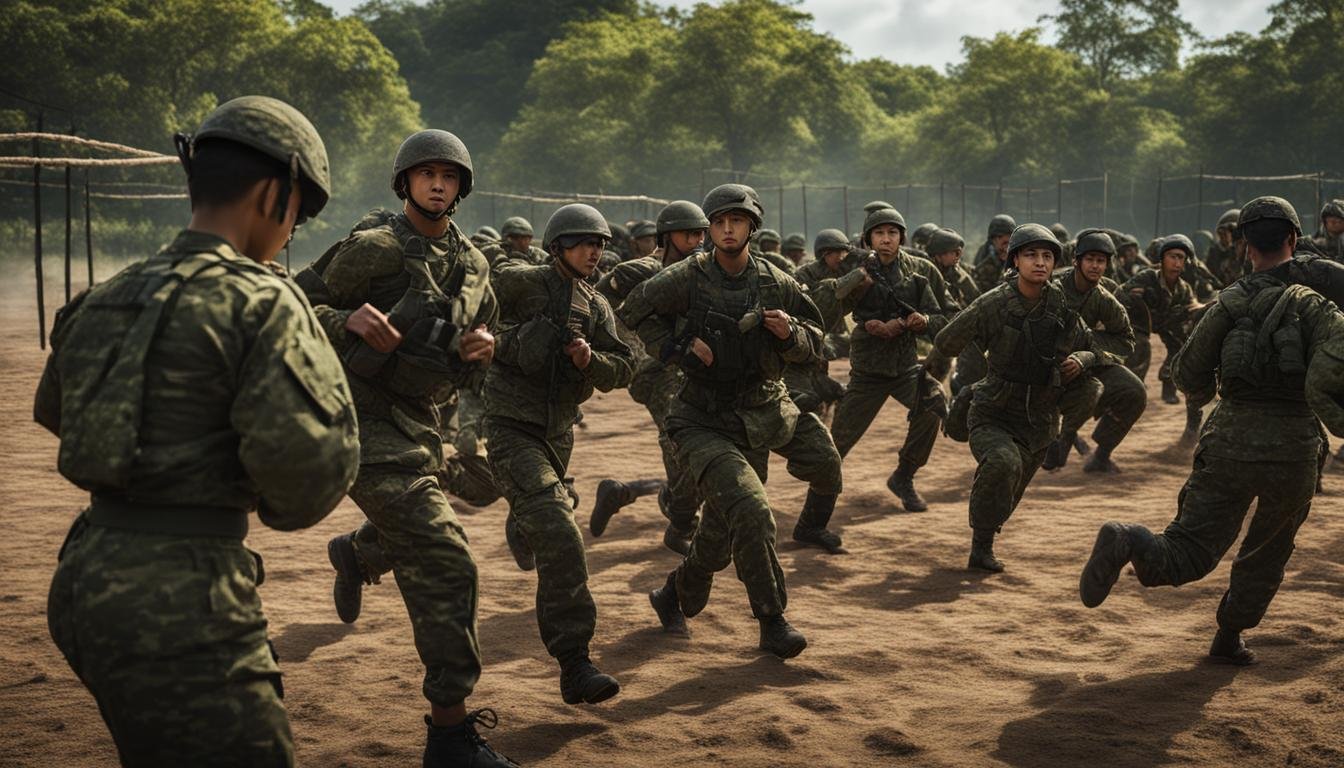Transferring credits from military training to college can be a complex process, but it’s an important step for military students looking to continue their education. Understanding the transfer credit policies, requirements, and equivalencies is crucial to ensure a smooth transition and maximize the benefits available to you.
Key Takeaways:
- Transferring credits is a great financial advantage for military students and their families.
- Service members must meet specific requirements and gain approval to transfer their education benefits.
- Each institution may have its own transfer credit requirements and limitations.
- Most institutions accept up to 15 semester hours of transfer credit.
- Traditional and non-traditional credits are considered for transfer.
Guidelines for Transferring Credits for Military Students

When it comes to transferring credits as a military student, there are important guidelines to keep in mind. Most institutions have transfer credit policies in place that allow military students to bring in credits from previous coursework or military training. However, the specific requirements and limitations may vary from institution to institution.
In general, institutions accept up to 15 semester hours of transfer credit. This means that you may be able to transfer the equivalent of five college courses towards your degree program. It’s important to note that non-traditional transfer credits, such as those earned through workplace training or certifications, usually cannot exceed 25% of the program requirements. Additionally, at least 25% of the degree program must be completed as residential credit, meaning you will need to take courses on campus or online through the institution where you are pursuing your degree.
“Transferring credits as a military student can be a complex process, with each institution having its own specific requirements and limitations,” says John Smith, a transfer credit advisor at ABC University. “I always recommend that military students reach out to the transfer credit staff at their chosen institution for guidance and support throughout the process.”
To ensure a smooth transfer credit process, it’s essential to contact the transfer credit staff at your chosen institution. They will be able to provide you with the most up-to-date information on transfer credit policies and assist you in determining which of your previous credits are eligible for transfer. By working closely with the transfer credit staff, you can make informed decisions and ensure that you are on the right track towards completing your degree as a military student.
Transferring College Credits – Key Guidelines
- Most institutions accept up to 15 semester hours of transfer credit.
- Non-traditional transfer credits, such as those earned through workplace training or certifications, generally cannot exceed 25% of program requirements.
- At least 25% of the degree program must be completed as residential credit.
- Each institution may have its own specific requirements and limitations for transferring credits, so it’s important to reach out to the transfer credit staff for guidance.
Transferring college credits as a military student can be a complex process but with the right information and support, it can be a rewarding step towards achieving your educational goals.
How Can Military Students Advocate for More Favorable Transfer Policies?
Military students can advocate for more favorable transfer policies for military personnel by voicing their concerns to school administrators and government officials. By organizing and participating in advocacy campaigns, they can highlight the unique challenges faced by military personnel and push for policies that better support their academic advancement.
Transfer Equivalencies and Requirements for Military Students
When it comes to transferring credits as a military student, it’s important to understand the transfer equivalencies and requirements set by each institution. Eligibility for transferring credits and the number of credits accepted can vary, so it’s crucial to research and communicate with your chosen institution.
One factor to consider is the time limitations on certain coursework. Some institutions may not accept credits that are older than a specified number of years. However, both traditional credit earned through accredited institutions and non-traditional credit earned through military training or workplace certifications are typically considered for transfer.
It is recommended that you check with your institution to determine their specific transfer equivalencies. Each institution may have its own policies, limitations, and requirements. By understanding these guidelines, you can better plan your academic journey and make informed decisions about which credits are transferable.
Remember, transferring credits as a military student can be a great way to build on your previous education and training. Take advantage of the resources available, such as transfer credit staff, to navigate the transfer process smoothly and maximize your academic opportunities.



